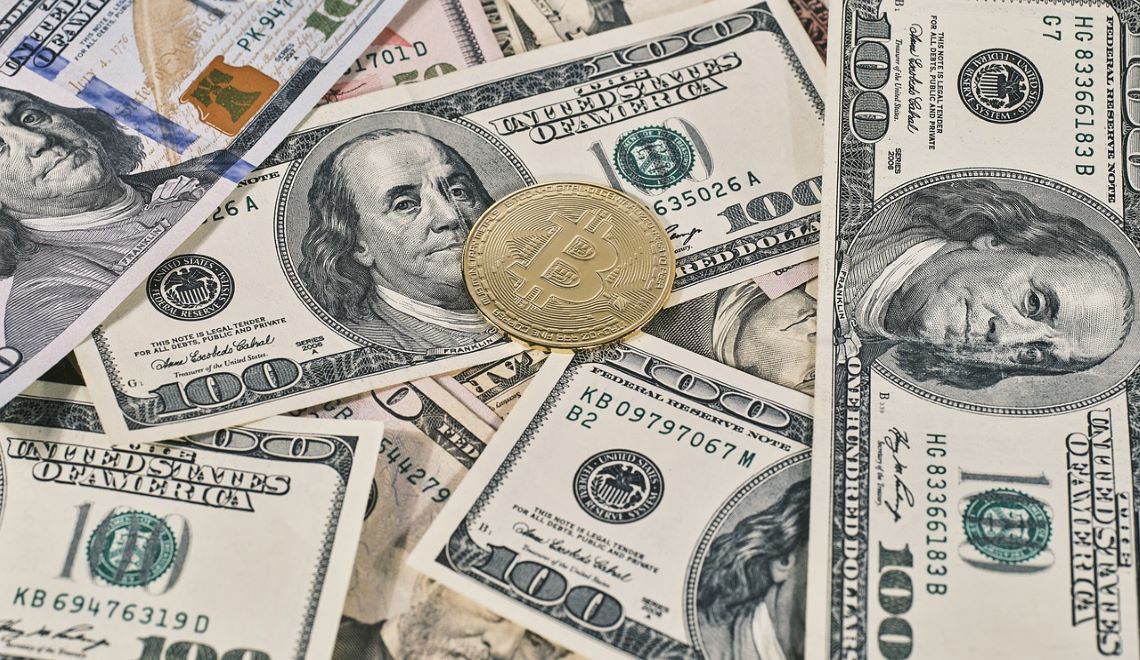Despite a few snags, the digital asset industry has exploded in recent years, especially with regard to adoption. Investors, traders, and notable financial organizations all over the world have recognized the asset class. The United States is not immune.
The United States Federal Reserve Board (Fed) has included cryptocurrency data in its new Economic Well-Being of American Households report, which got published in 2022. The Fed released its ninth annual study, which looked at survey results from 11,000 individuals polled between October and November 2021.
Fed report includes crypto statistics for the very first time
The Fed wanted to know how new products were affecting customers, which is why Fed included cryptocurrency for the first time in the survey. According to the Fed, most crypto investors in the United States hold it for investment purposes, with high-income individuals accounting for the majority of them. Due to a lack of conventional bank accounts, low-income people use crypto mostly for transactional activities.
The Fed’s annual report showed that financial well-being is at its highest since the reporting began, with 78% of Americans describing themselves as doing okay or living comfortably financially. That is a rise of 3% over the previous three years. The report notes that 68 percent of Americans could cover a $400 emergency expense with cash or its equivalent alone as a checkup for financial fitness.
The Fed, for the first time, studied cryptocurrency usage. According to the study, 12% of adult Americans owned or used cryptocurrency in 2020. The Fed found that 11% of crypto investors keep it as an investment, 2% use it for a purchase or payment, and 1% send it to friends or family.
Investors who own cryptocurrencies tended to be high-income, almost always had a traditional banking connection, and typically had other retirement savings. 48% of respondents had an annual income of $100,000 or more, and 89% of those who were not retired maintained a retirement fund. Twenty-nine percent earned less than $50,000.
This @federalreserve survey has provided insight into the economy and consumers’ financial well-being, including in the #COVID19 pandemic, with on-the-ground data that identify possible risks to the financial well-being of U.S. families. (2/4) pic.twitter.com/sBn1FzTDxA
— Federal Reserve (@federalreserve) May 23, 2022
The profile of the typical crypto user differs dramatically from that of an investor. According to the Fed report, around 60% of these users had incomes below $50,000, with 20% having earnings under $25,000. Only 24% of respondents made more than $100,000 per year.
Thirteen percent of respondents did not have a bank account. This compared to the 6% of adult Americans who were without bank accounts. When it came to crypto use for transactions, 27% of those utilizing it didn’t have credit cards, versus 17% of the overall population.
As measured in this Fed report, overall consumer financial well-being has been at its highest level since the survey began in 2013. Despite headlines of inflation and a possible economic downturn on the horizon, 48% of adults assessed their local economy as good or excellent.
Crypto grows in popularity despite the market volatility
The numbers suggest there is a lot more potential. According to the data, only 12% of adults had or used cryptocurrency in the last year. If crypto gains traction, it may result in much greater usage, given how little it currently counts.
Despite the growth rate, the drawbacks for those who used cryptocurrencies for transactions included the following: Almost a quarter of respondents lack a high school diploma, according to the findings of the FED survey.
Along with other US agencies, the Federal Reserve has been paying more attention to the digital asset market. The growing popularity has compelled authorities to address these new technologies and their potential effects on the broader economy. On its part, the Fed is considering issuing a central bank digital currency.
Some experts believe that the Federal Reserve’s policies will result in higher crypto and gold prices. The Fed recently announced a 0.5 percent increase in interest rates, which is the most significant increase since 2000.
The crypto market, like other markets, has plummeted as a result of the same forces that affect traditional finance. However, lawmakers are concerned with investor protection and a spillover effect, thus prompting an increase in regulatory attention. That interest should soon transform into legislation as more adoption is expected and market fluctuations continue.
The 2021 survey shows improvement in self-reported financial well-being of parents & families, while continuing to share findings on how people viewed their longer-run financial circumstances. (3/4) Learn more: https://t.co/roERrnckE1 pic.twitter.com/Fhe4Fztdb5
— Federal Reserve (@federalreserve) May 23, 2022
Blockchain analysis firm Chainalysis found a significant increase in cryptocurrency adoption last year. The blockchain intelligence firm predicted worldwide cryptocurrency digital asset usage shot up by 880 percent in its 2021 Global Crypto Adoption Index report.
Chainalysis evaluated the United States eighth overall for adoption. Vietnam topped the list, followed by India, Pakistan, Ukraine, Kenya, Nigeria, and Venezuela. According to Chainalysis, a drop in peer-to-peer trade volumes in the United States as cryptocurrency trading institutionalized knocked the country down several charts.
This is a significant development for the cryptocurrency industry as a whole. It’s worth noting that sentiment and narrative shift over time. Despite making progress in the right direction, this niche sector is still vulnerable to illegal activities and regulatory barriers. As a result, the cryptocurrency market’s nature is still extremely unpredictable, at least in the near future.





